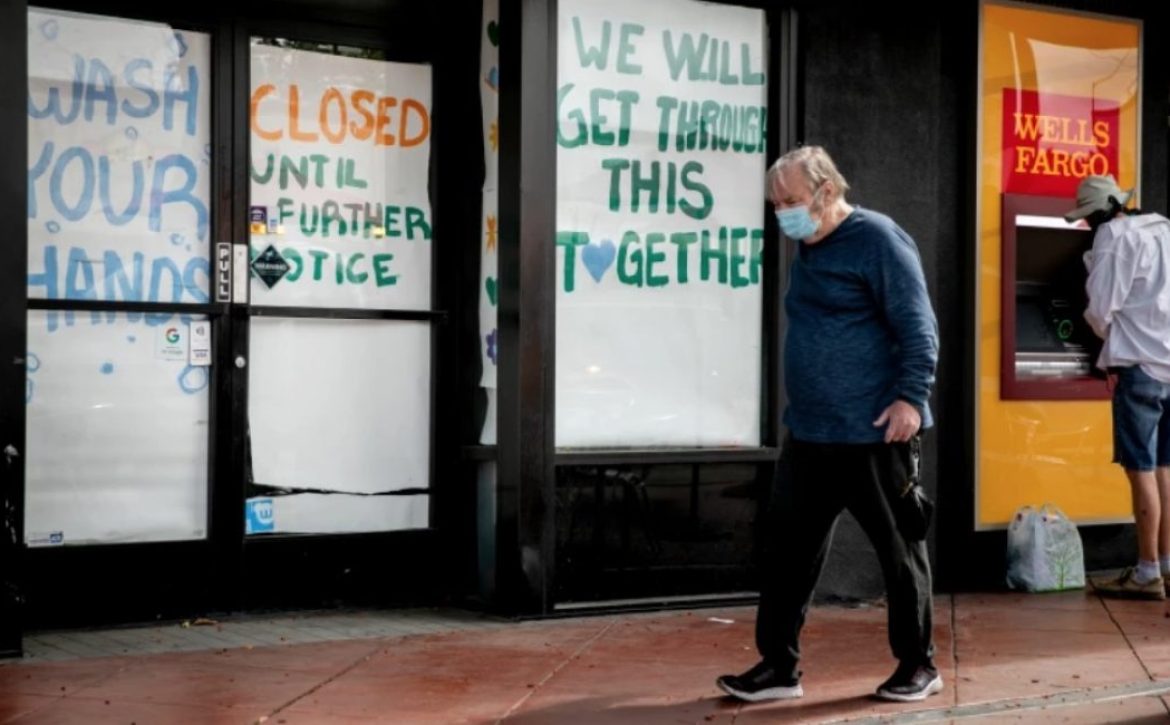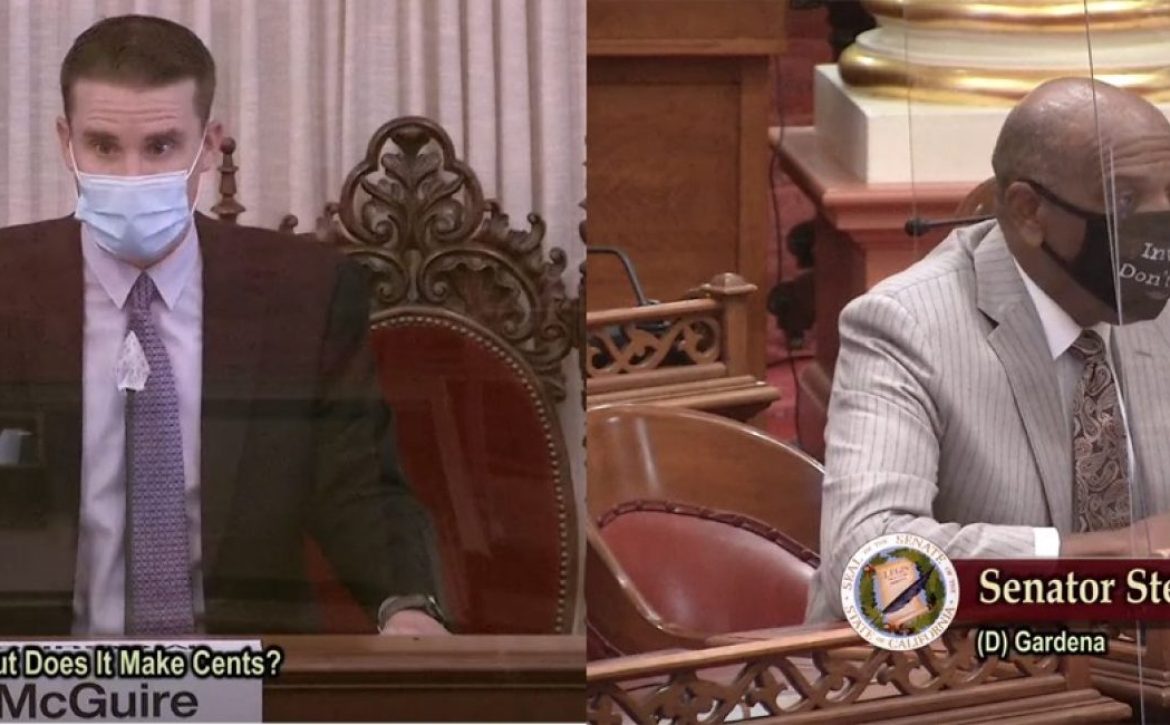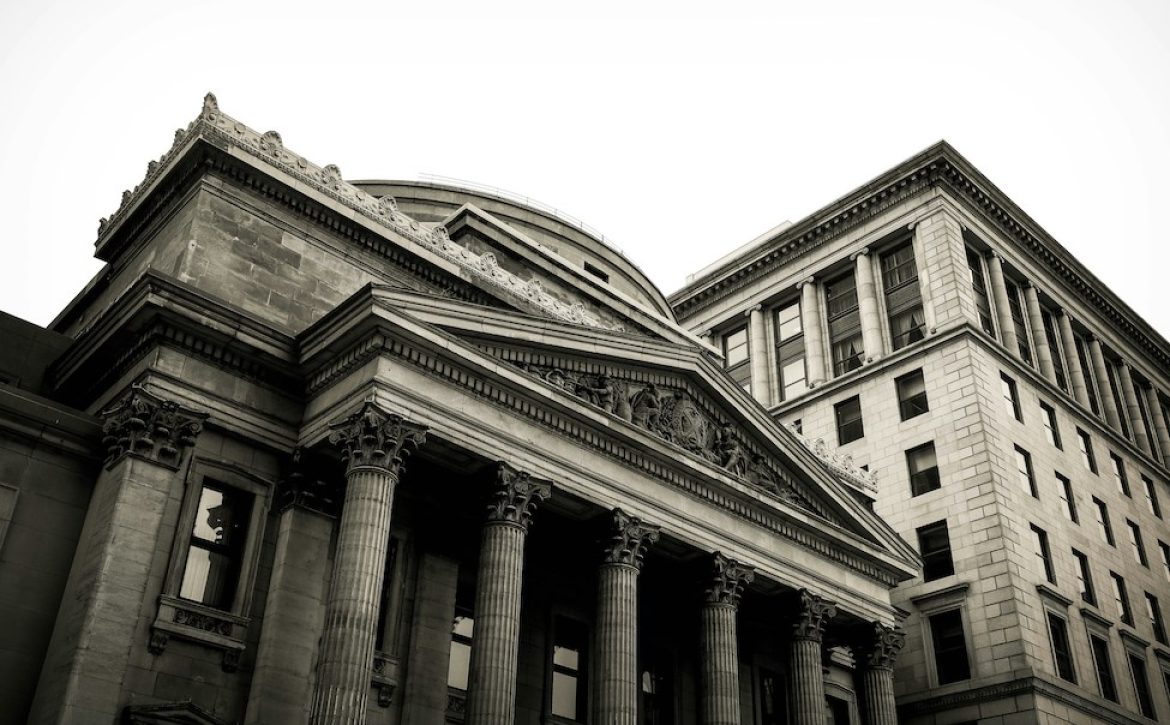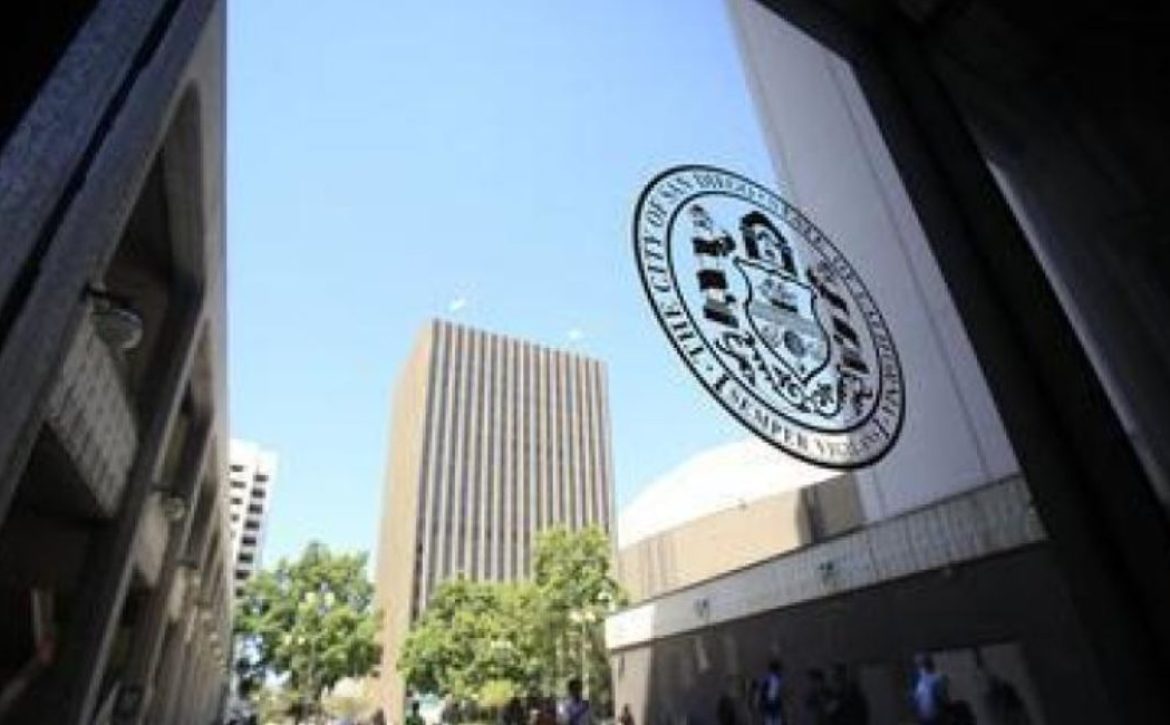By California Public Banking Alliance
America faces a perfect storm of ever-escalating crises which are culminating in a central crisis of democracy itself. We are wholly unprepared for this crisis, because our institutions are failing. From the justice system to the Presidency to Wall Street, Americans are wondering what actually works, and who led us to this situation in the first place. How can we repair the shell-shocked economy and reverse climate change, when politicians and their wealthy donors are steadfast to resist all change that would threaten their bottom lines, even if it ensures the end of life on Earth?
Under their watch, the economic and environmental precarities of working people have mounted for generations, and Black people and immigrants have been shunted to the side of prosperity, health and safety. The COVID-19 pandemic has brought extreme inequality and its deleterious effects on our nation’s social fabric into sharp relief. Renters face mass evictions, small businesses have closed forever, and governments at all levels face huge budget shortfalls that threaten basic services. People who have borne the brunt of inequality for centuries now see their situations getting even worse, and they see police ready to inflict violence to terrorize them into accepting that inequality.
The backdrop of this social turmoil is a global ecosystem incurring irreversible damage threatening homes, global security, and the supply of food and clean water for billions of people, including hundreds of millions in the United States. As fires rage on the West Coast and waters rise in Louisiana and elsewhere, the cost of inaction mounts daily. Meanwhile, millions of Americans are unable to work because the danger of infection is too great or because their jobs no longer exist, while others are forced to work in dangerous situations to maintain basic living standards in the richest country on Earth.
The measures taken to mitigate the impact of these crises on working Americans have failed, but you wouldn’t know it from the mood on Wall Street. Markets continue to forecast rosy days ahead for investors, despite record drops in GDP, employment, and consumer spending. The public health response to the virus has brave and diligent nurses and doctors pleading for resources and coordination from central authorities, who choose instead to pander to markets with promises of a quick reopening. The Federal Reserve has taken extraordinary steps to shore up commercial debt and capital markets, amounting to a massive payday for the richest people in the world. America’s cities, which are blameless in the scope and impact of this catastrophe, face multibillion dollar deficits, school closures, and even bankruptcy, threatening the pay and medical benefits of teachers, firefighters, and sanitation workers. This callousness towards the needs of cities stands in sharp contrast to the swift and active protection received by Wall Street both in 2008, when financial market actors engineered the global collapse, and in 2020, when they show no interest in providing for anyone other than themselves.
The minimal assistance the Fed has extended to the people and their local governments has utterly failed to address this unprecedented economic shock, and has mostly exacerbated the structural inequalities built into our nation’s financial system. The Municipal Liquidity Facility (MLF) was supposed to help state and local governments, but city and state treasurers are in agreement that its terms are onerous and render the effort useless, which is why it has only been tapped twice during the entire pandemic, once with significantly renegotiated terms.
The Paycheck Protection Program (PPP), a forgivable loan program meant to keep people employed and businesses afloat, was mainly eaten up by big, well-connected businesses. The President’s son-in-law was able to borrow millions for his businesses. The National Community Reinvestment Coalition found that lenders discouraged Black borrowers from applying for a loan while encouraging white borrowers to apply for multiple loans. As a result of the historic and long-standing structural barriers to capital for Black and Brown small business owners, only 2% of PPP loans went to Black-owned small businesses and only 6% went to Latinx small businesses. Rather than ensure that workers, small businesses, and school and public health systems are able to withstand this storm, Wall Street and their friends in the Trump administration have made cheap credit available to multi-billion dollar private companies while leaving the rest of us, especially Black people and other marginalized groups, in the rain.
The tools at our disposal today are inadequate to solve our current crises. Efforts to confront the issues head-on, like the ones which make up the Green New Deal, cannot and should not rely on private banks and existing federal programs. Decades of “green” investment, recycling, carbon offsets and luxury electric cars have not slowed the melting of the ice caps or the rising of the seas. Health insurance companies and private hospital chains are not in the business of solving our comorbid healthcare crises of rampant debt, lack of access, and drastically unequal outcomes. Private banks and investors have neither the incentives nor the desire to tackle these issues, nor should we permit them to syphon profit from the massive public investments necessary to effectively deal with them. Instead, Congress and governments at every level must establish new forms of investment for the common good, including public banks, to serve as an alternative to the private financial system, to make these solutions a reality.
The public needs an alternative to Wall Street. As momentum grows in dozens of cities and states across the US to pass public banking legislation, we endorse the Public Banking Act introduced by Representatives Tlaib and Ocasio-Cortez. The bill enables the creation of public banks with direct access to the Federal Reserve, creates a pathway for state-chartered banks to gain federal recognition, and recognizes a framework for public banks to interact with Fed Accounts and Digital Dollar platforms. Only the establishment of public investment and banking accountable to the common good will give cities, states and federal agencies the tools we need to solve these crises.
Public banks, defined as banks entirely owned by cities, counties, public districts or states and controlled by the people who live in them, can help ensure credit is made available for local renewable energy and other green businesses, climate-resilient infrastructure, public and affordable housing, education, rehabilitation, and low-cost loans to job-creating entrepreneurs, especially to marginalized communities and worker-owned businesses. Chartering banks to invest public capital in these projects will not completely solve these crises. We need a financial system that prioritizes the livability of our planet and the equality demanded by a free people. We need banks that are answerable to the people, and accountable to standards of sustainable and restorative investment.
Public banks are a proven tool and are essential to a revitalized public financial system. There are over 700 public banks worldwide investing $37.7 trillion, which accounts for 15% of all global assets. Germany’s robust Sparkassen network of over 400 public banks have functioned as the engine of the country’s infrastructure development, providing 72% of all financing for that country’s world-leading renewable energy infrastructure. Wherever they operate, public banks provide a vehicle for economic recovery and resilience by harnessing public credit and financial services to invest directly into local communities, small businesses, and municipal governments.
Public banks complement postal banking and other approaches to democratize the Federal Reserve. Under Tlaib’s bill, public banks in state and cities could seamlessly integrate with FedAccounts, a new proposal that would give Americans easy access to payment services without relying on for profit banks and the risks they pose to deposits. Postal banks could work with public investment banks in counties to reinvest savings accounts into new school construction, paying millions of workers the interest payments instead of a handful of institutional investors. These are not financial innovations, quite the contrary, they are quite common throughout the world, with one special example in the United States.
Domestically, the Bank of North Dakota has operated for over a century and weathered every financial crisis while improving the state’s financial position. In partnership with community banks, BND rolled out the most accessible implementation of PPP and its two successor programs in the country, while deferring all $1.1 billion of its student loans until after the crisis.
We need more publicly-obligated capital sources devoted to economic recovery and reinvention to meet challenges ahead. Public bank efforts in California, New York, Washington, Pennsylvania, and many other states follow the model of existing public banks such as BND and Sparkassen. These banks will facilitate critical investment, largely through partnerships with local community banks and credit unions to provide low-interest loans for small businesses, affordable housing, infrastructure, and other sectors to serve the public good.
Perhaps even more impactful is how public banks will extend access to basic money and financial services for everyday Americans. Private banks have long perpetuated racial and economic inequality by systematically denying basic financial services to Black people and immigrants. In Miami, Detroit, Laredo, TX and the Bronx over 20% of residents do not have bank accounts. In areas of Cleveland, Nashville and Atlanta that number is as high as 40%. Unfettered access to the fruits of one’s own labor is a human right. In 2020, US wages are paid in US dollars which must be deposited into banks, so those of us deemed “unprofitable” have few alternatives. Check cashing services, overdraft fees, and high interest payday loans exact a high cost for being poor, to the benefit privately-owned banks and largely unregulated “shadow banks.” Public banks can offer free and low-cost services universally giving access to check cashing, bank accounts and basic credit services so that everyone can participate in the economy, cash our paychecks, and feed our families.
These are the practical reasons for public banks, but we also have a moral duty to divest from exploitative and extractive systems bound up with private finance. Private financial institutions consider the banking power theirs and theirs alone, and our government has agreed with them, until now. Their opposition to public banking is well documented and rooted in self preservation, not financial prudence. But a banking charter is an instrument of the public trust, and in America governments franchised that power entirely to an unaccountable class of shareholders and lobbyists, to the detriment of working people around the world.
Building an intergenerational foundation for a more just and equitable financial system will proceed faster and more smoothly with a network of publicly owned banks at the municipal and state level. Without this network in place to direct and capture gains from stimulus spending, the recovery could be marked by a decade or more of austerity, with public budgets servicing guaranteed debt to far-flung investors with huge portfolios, but no stake in our communities.
Let’s not repeat the same mistake we made in the last financial crisis. We can transform the foundation of our financial system and place its power in the hands of the people. We can make urgent investments in the recovery, a just economy and a habitable world, and we can create banks and financial infrastructure accountable to those goals. We need public banks now.

















